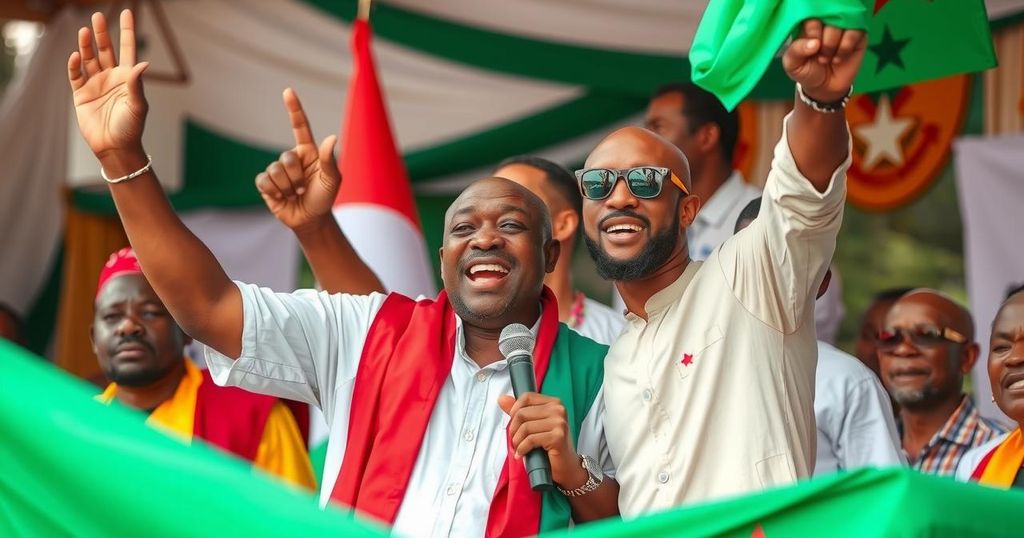Chad’s Ruling Party Achieves Major Electoral Victory Amid Opposition Boycott
Chad’s ruling Patriotic Salvation Movement party achieved a significant majority in the country’s parliamentary election, winning 124 of 188 seats amidst a 51.5% voter turnout. This election is marked by a boycott from major opposition parties, who viewed it as lacking credibility. It represents President Mahamat Idriss Deby’s consolidation of power following his rise to leadership in 2021 and reflects the ongoing challenges facing Chad amid security threats and changes in international relations.
Chad’s ruling party, the Patriotic Salvation Movement, has secured a commanding majority in the recent parliamentary elections, with preliminary results showing it won 124 out of 188 available seats. The elections, taking place for the first time in over a decade, witnessed a voter turnout of 51.5% according to Ahmed Bartchiret, the head of the electoral commission. This electoral process was perceived as a pivotal step towards democratization following the ascension of President Mahamat Idriss Deby, who assumed leadership in 2021 after the death of his father, the long-serving Idriss Deby Itno.
This electoral event also included regional and municipal elections and was regarded as the final phase in Chad’s transition to democracy. President Deby had positioned the elections as an opportunity for decentralization, advocating for the distribution of governance powers to local levels. However, the election faced significant opposition as over ten political parties, including the pivotal Transformers party led by Succes Masra, chose to boycott the process, dubbing it a “charade.” Their apprehensions centered around fears of the elections reflecting the questionable credibility seen in previous presidential voting processes.
Chad currently grapples with various security challenges, including threats from Boko Haram in the Lake Chad area, alongside diminished military relations with France, a former ally. The absence of formidable opposition during the elections has seemingly fortified President Deby’s command over the political landscape, as the dominant party capitalizes on the lack of credible challengers.
The parliamentary elections in Chad marked a significant political milestone, being the first of its kind in more than ten years. President Mahamat Idriss Deby, who took charge following the death of his father, Idriss Deby Itno, in 2021, positioned himself as a proponent of democratic transition in the country. The elections aimed to decentralize power, expanding governance from a central authority to regional and local leaders. However, the absence of key opposition parties raises questions about the electoral legitimacy, particularly following previous contentious elections that have faced scrutiny from observers. The current security challenges, particularly from Boko Haram and a shift in international alliances, underscore the complexities facing the nation as it navigates its political landscape.
In summary, the recent parliamentary elections in Chad have resulted in a substantial victory for the ruling Patriotic Salvation Movement, facilitated by a significant opposition boycott. With a voter turnout of 51.5%, the elections are framed as a transformational step towards democratization under President Mahamat Idriss Deby. Nevertheless, the legitimacy of these elections is questioned due to the absence of strong opposition and ongoing security challenges, casting doubt on the future political stability of Chad.
Original Source: www.euronews.com




Post Comment